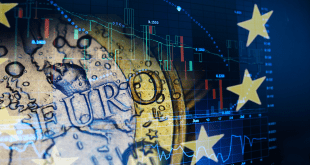It has been another busy holiday season this year with online sales growing 11% year-over-year (YoY) according to the latest Mastercard SpendingPulse market intelligence which focuses on the measurement of in-store and online retail sales across all modes of payment.
The data, which covers sales from 1 November to 24 December and excludes automotive sales, has showed that overall retail sales grew 8.5% YoY in 2021.
According to the report, “Shoppers were eager to secure their gifts ahead of the retail rush, with conversations surrounding supply chain and labor supply issues sending consumers online and to stores in droves. Consumers splurged throughout the season, with apparel and department stores experiencing strong growth as shoppers sought to put their best dressed foot forward.”
Consumers shopped early continuing a key trend from 2020, US consumers shopped earlier than in years past, as retailers offered special promotions early and then again later in the season as shoppers raced to secure “guaranteed by Christmas” shipping offers. Looking at Mastercard’s expanded holiday season, total retail sales were up +8.6%* YOY for the 75 days between 11 October and 24 December.
Thanksgiving weekend remained key: Black Friday marked the top spending day of the 2021 holiday season again. For the Thanksgiving weekend running Friday, 26 November through Sunday, 28 November, shoppers drove US retail sales up +14.1% YOY. In-store sales also rebounded, increasing +16.5% YOY while eCommerce sales experienced sustained growth, up +4.9% YOY.
Whether consumers were shopping for themselves or for loved ones, the Jewelry sector experienced some of the strongest YOY and YO2Y growth.
eCommerce sales snowballed this holiday season, eCommerce made up 20.9% of total retail sales, up from 20.6% in 2020 and 14.6% in 2019. The channel continues to experience elevated growth as consumers enjoy the ease of holiday browsing and buying in the comfort of their own homes.
Mastercard SpendingPulse reports on national retail sales across all payment types in select markets around the world. The findings are based on aggregate sales activity in the Mastercard payments network, coupled with survey-based estimates for certain other payment forms, such as cash and check.
The online shopping surge has greater implications for the retail industry at large, mostly because retailers just have not perfected the digital-first experience. Convenience drives spend, and notable in Mastercard’s report, for instance, was that eCommerce sales were extremely popular with consumers this holiday season: eCommerce sales were over 20% of total retail sales compared to last year.
According to PYMNTS research, nearly two thirds (63%) of holiday shoppers will return at least one of their purchases and for a variety of reasons. The majority of returns are for the wrong fit, color or style although in truth, it is really hard to know. Consumers often have a change of heart for a variety of reasons, and simply decide once they see an item that it no longer suits.
Consumers want retailers who are on their side and who have their best interests at heart. As PYMNTS reported, whether or not a merchant offers has an easy-to-understand return policy could compel over half of consumers, 55%, to make a switch over to this brand. Consumers want their shipping costs to be fair so they don’t feel taken advantage of. Interestingly, shipping costs deter nearly half, namely 48%, of consumers away from one company’s site to another when making a purchase.
The latest Tweet by Reuters states, ‘U.S. e-commerce sales jumped 11% in this year’s holiday shopping season, according to a Mastercard SpendingPulse report, underscoring the role of the health crisis in transforming customers’ shopping habits …’

 Noor Trends News, Technical Analysis, Educational Tools and Recommendations
Noor Trends News, Technical Analysis, Educational Tools and Recommendations




